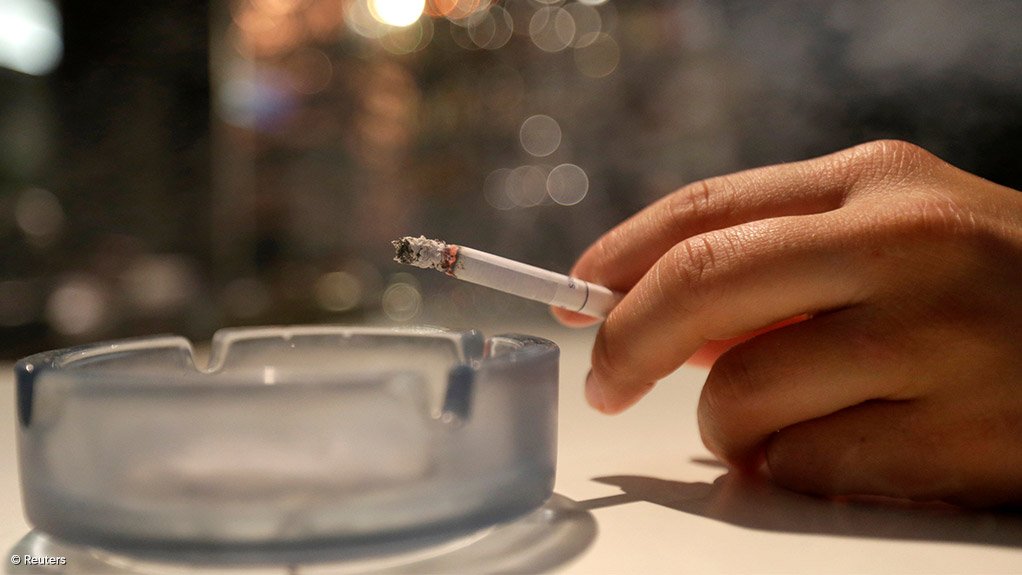British American Tobacco South Africa (Batsa) on Thursday said the ongoing tobacco ban was costing the government R35-million in taxes daily and should be lifted immediately.
"After 118 days of lockdown, the ban on tobacco products sales has now cost over R4-billion in excise taxes alone and substantial job losses," the country's biggest cigarette manufacturer said.
The statement from Batsa follows the release of a study report by academics at the University of the Western Cape that concluded that extending the ban beyond the beginning of May, when the country's hard Covid-19 lockdown was lifted, had proven a bonanza for the black market, while delivering negligible public health benefits.
The researchers said of 23 000 people interviewed only nine percent had quit, proving that the government's stated wish to force smokers to quit to prevent them falling severely ill due to Covid-19 and overwhelming hospitals had failed.
"Batsa fully supports the unequivocal recommendation from the Research Unit on the Economics of Excisable Products (REEP) report’s authors for an immediate lifting of the tobacco products ban," the company said.
It said the report showed that 93 percent of the country's smokers are still able to purchase cigarettes, "meaning that millions of illegal transactions are taking place across the country every day".
"The market has been completely taken over by illicit cigarette suppliers at the expense of law-abiding and tax compliant manufacturers, like Batsa, and the fiscus continues to lose R35-million in taxes every single day."
Whereas the authors of the report called for government to replace the ban with a sizeable hike in taxes on tobacco products, Batsa disagreed and said this would simply play into the hands of illicit traders.
"A post-ban hike in excise tax will 'permanently' hand the majority of the cigarette market to criminals who do not contribute to this country’s fiscus."
Batsa’s head of external affairs, Johnny Moloto, said instead more resources must be allocated to the South African Revenue Service (Sars) to ensure that the market can be taken back from criminals in the aftermath of the ban.
“These illicit suppliers are not, suddenly, going to become compliant and start obeying the law and paying taxes when the ban is eventually, lifted. They evaded taxes prior to the lockdown, they’ve made billions tax-free during the ban and they will evade taxes after the ban.”
“A dramatic increase in excise taxes, as suggested by the UCT report’s authors as a substitute for the prohibition on sales, would be second only to the ban itself as an absolute gift to the criminal suppliers."
The company addressed suggestions in the report that cigarette makers are getting around the four-month-old ban by exporting vast increases in cigarette volumes to neighbouring countries, that are then promptly smuggled back across the border into South Africa and sold on the black market.
“Batsa exports to BAT entities in 12 other countries and the volumes we are producing are consistent with export volumes before the lockdown. Batsa is working closely with Sars and have implemented Sars’s new processes and protocols for production and export," it said.
Batsa is challenging the cigarette ban in court, as is the Fair-Trade Independent Tobacco Association in a separate case.
FITA on Wednesday cried foul after the government on its official Twitter account tweeted that the twin bans on cigarettes and alcohol would remain in place for as long as South Africa is in lockdown. It said this flew in the face of earlier assurances by president Cyril Ramaphosa that it would only apply to level 3 of the lockdown.
Government retracted the tweet to say this was indeed the case, but a ministerial briefing document has emerged which appears to confirm that the official government position is that the ban will last as long as the lockdown.
EMAIL THIS ARTICLE SAVE THIS ARTICLE
To subscribe email subscriptions@creamermedia.co.za or click here
To advertise email advertising@creamermedia.co.za or click here











